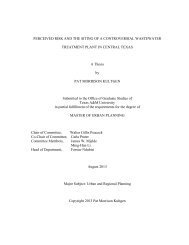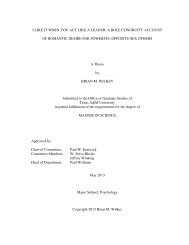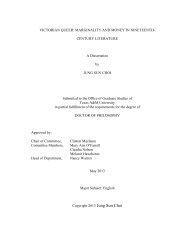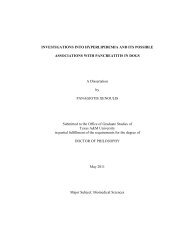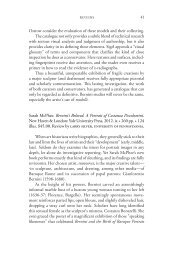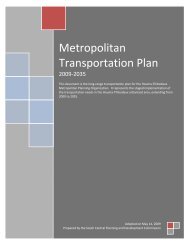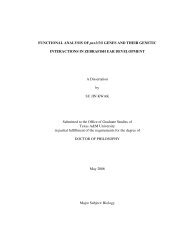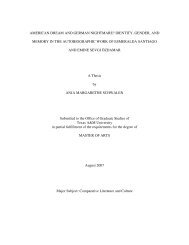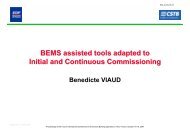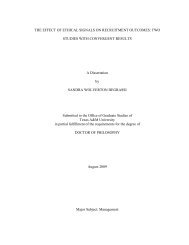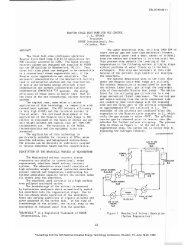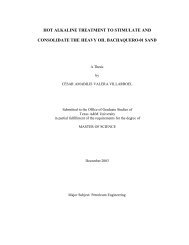A Dissertation by GRACE HUI-CHIN LIN Submitted to the Office of ...
A Dissertation by GRACE HUI-CHIN LIN Submitted to the Office of ...
A Dissertation by GRACE HUI-CHIN LIN Submitted to the Office of ...
You also want an ePaper? Increase the reach of your titles
YUMPU automatically turns print PDFs into web optimized ePapers that Google loves.
months after <strong>the</strong> training and interview processes had been completed.<br />
Prolonged engagement allowed <strong>the</strong> participants’ perspectives <strong>to</strong> emerge, and<br />
<strong>the</strong> time <strong>to</strong> develop a greater understanding <strong>of</strong> <strong>the</strong> emit perspective (Lincoln & Guba,<br />
1985). This prolonged study not only avoided research bias caused <strong>by</strong> <strong>the</strong> trainer and<br />
<strong>the</strong> students’ misunderstanding <strong>of</strong> 5 communication strategies, but it also contributed<br />
<strong>to</strong> long-term cooperation among <strong>the</strong> researcher, trainer, and respondents. During 11<br />
weeks <strong>of</strong> training and interview, this study allowed <strong>the</strong> students’ feelings and<br />
feedback on five communication strategies <strong>to</strong> emerge. Also, <strong>the</strong> prolonged<br />
engagement <strong>of</strong> two 90-minute interviews provided students sufficient opportunities<br />
<strong>to</strong> recall what <strong>the</strong>y had experienced in class, <strong>to</strong> manage what <strong>the</strong>y would like <strong>to</strong> say<br />
and express <strong>the</strong>ir perceptions. After <strong>the</strong> students’ perceptions were conceptualized<br />
in<strong>to</strong> <strong>the</strong>mes from <strong>the</strong> coded data, <strong>the</strong> students and <strong>the</strong> researcher reconfirmed <strong>the</strong><br />
findings through email and telephone for about six months <strong>to</strong> establish even higher<br />
credibility.<br />
Confidentiality<br />
Confidentiality is an important and necessary issue in interviews <strong>of</strong><br />
qualitative inquiry. “People in interviews will tell you things <strong>the</strong>y never intended <strong>to</strong><br />
tell. Interviews can become confessions, particularly under <strong>the</strong> promise <strong>of</strong><br />
confidentiality” (Pat<strong>to</strong>n, 1990, p. 355). So, confidentiality was guaranteed <strong>to</strong> <strong>the</strong><br />
volunteers <strong>by</strong> <strong>the</strong> trainer and <strong>the</strong> researchers before <strong>the</strong>y were interviewed.<br />
Additionally, before <strong>the</strong> processes <strong>of</strong> training and interviewing, <strong>the</strong> participants were<br />
invited <strong>to</strong> read and sign an IRB (Institutional Review Board) consent form, which<br />
informed <strong>the</strong>m how <strong>the</strong>ir privacy would be protected when cooperating with <strong>the</strong><br />
researcher. To preserve <strong>the</strong> confidentiality, <strong>the</strong> face-<strong>to</strong>-face interview was conducted<br />
63



